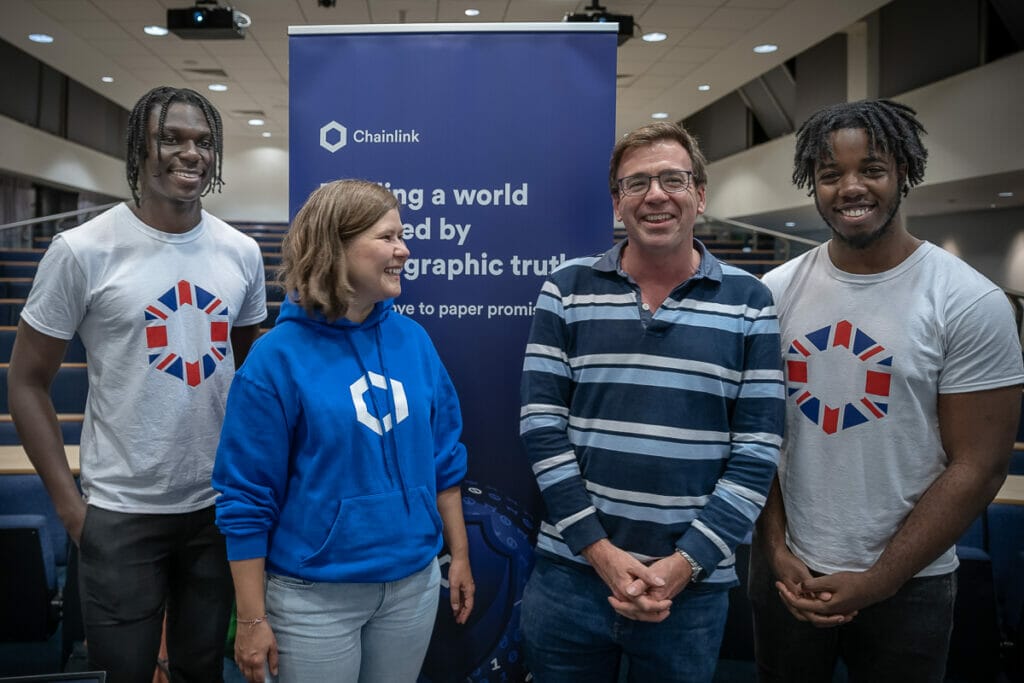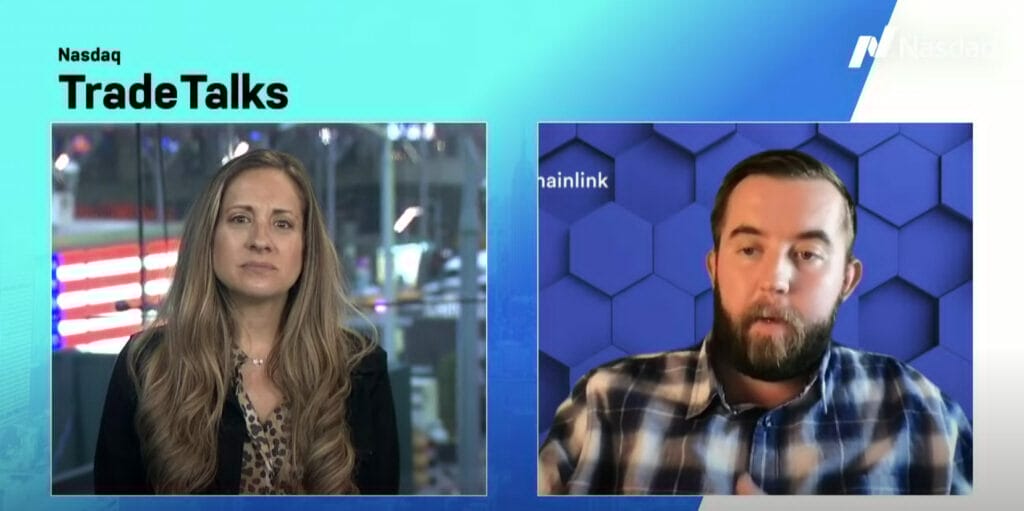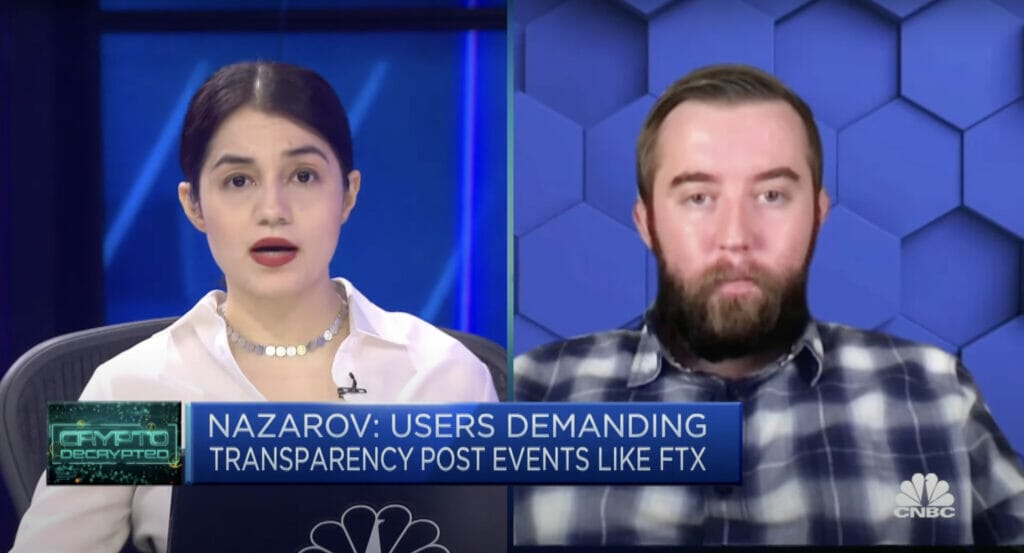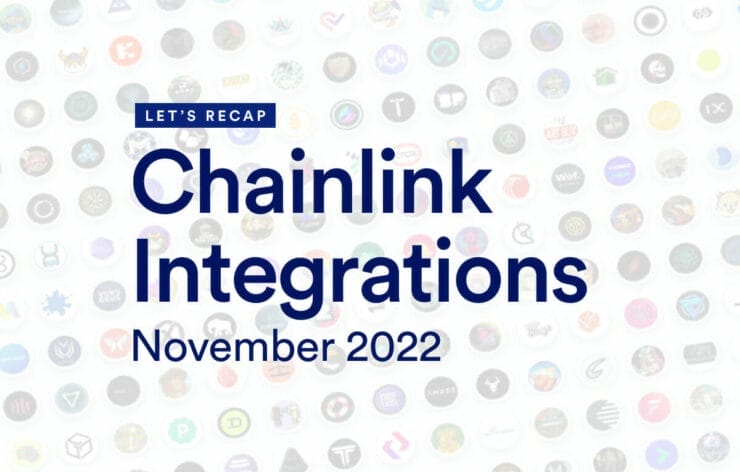November was a momentous month for the Chainlink community, beginning with Chainlink’s first developer bootcamp at the prestigious Imperial College London. Chainlink community advocates and Brunel University computer science students Amaechi Okolobi and Tyrese Tetteh led a group of 500 professors, students, and community members in building and deploying smart contracts.
The event was organized by Chainlink Community Manager Tatiana Polivoda with the help of Professor William Knottenbelt, Director of the Imperial College Centre for Cryptocurrency Research and Engineering. Participants included experienced web2 and web3 developers as well as first-time coders.
“We had some people who didn’t know anything at all about blockchain, and then they deployed their first smart contracts two hours later,” Polivoda told Chainlink Today. She said the event was so successful that it garnered requests for Chainlink bootcamps from other UK universities.

November was also a historic month in web3. Amid fallout surrounding the FTX crisis, Chainlink co-founder Sergey Nazarov appeared on Nasdaq TradeTalks with host Jill Malandrino to explain how Chainlink’s Proof of Reserve (PoR) could prevent similar solvency problems in both the crypto industry and traditional financial markets.

“What Proof of Reserve would have done in this case is it would have proven in real time how much value the exchange had and what form that value took,” he said. “And so depositors wouldn’t have been surprised to learn what was backing their deposits and therefore they wouldn’t have engaged in a bank run.”
This week, Nazarov appeared on CNBC’s Street Signs with host Tanvir Gill to continue the conversation about why he believes PoR constitutes “a very simple and very clear solution that fundamentally solves the problem” of insolvency.
In addition to “a very strong willingness from top entities and exchanges” to implement PoR, Nazarov believes user demand for transparency will ultimately drive adoption of PoR as the new minimum standard for all financial institutions.

The launch of Chainlink Economics 2.0 is well underway, with the beta of Chainlink Staking (v0.1) set to go live on Ethereum mainnet in early December. In addition to 70 new product integrations, Chainlink also announced the first 10 projects accepted into the Chainlink BUILD program, a key component of Economics 2.0 that benefits early-stage startups in the Chainlink ecosystem while boosting the Chainlink Network’s cryptoeconomic security.
Among the first 10 BUILD projects are Dolomite, a margin protocol and DEX that uses Chainlink Price Feeds to support its advanced leveraged trading and lending functions on Arbitrum, and Cask, a decentralized noncustodial protocol that uses Chainlink Price Feeds and Automation to power automated money flows in web3.
Dolomite co-founder Corey Caplan told Chainlink Today that participating in BUILD will enhance the protocol’s ability to differentiate itself by utilizing Chainlink’s decentralized services to create new DeFi capabilities.
“Direct access to Chainlink engineers to experiment with building new things is really exciting,” he said. “The Chainlink engineers are top-notch and have a deep attention to detail and quality that’s hard to find elsewhere.”
Cask co-founder Matt Brickley was similarly enthusiastic about joining BUILD, telling Chainlink Today that the program will help Cask innovate advanced use cases for automated money flows using Chainlink services like Automation and VRF (Verifiable Random Function) with the ultimate goal of expanding web3’s reach.
“Joining Chainlink BUILD will help accelerate the development and adoption of automated money flows on web3,” he said. “We look forward to our continued collaboration with the Chainlink ecosystem and building new services that will benefit the community.”
Check your eligibility for Chainlink Staking v0.1 early access.
Learn more about Chainlink BUILD and apply here.
View the entire Chainlink ecosystem in one place.



